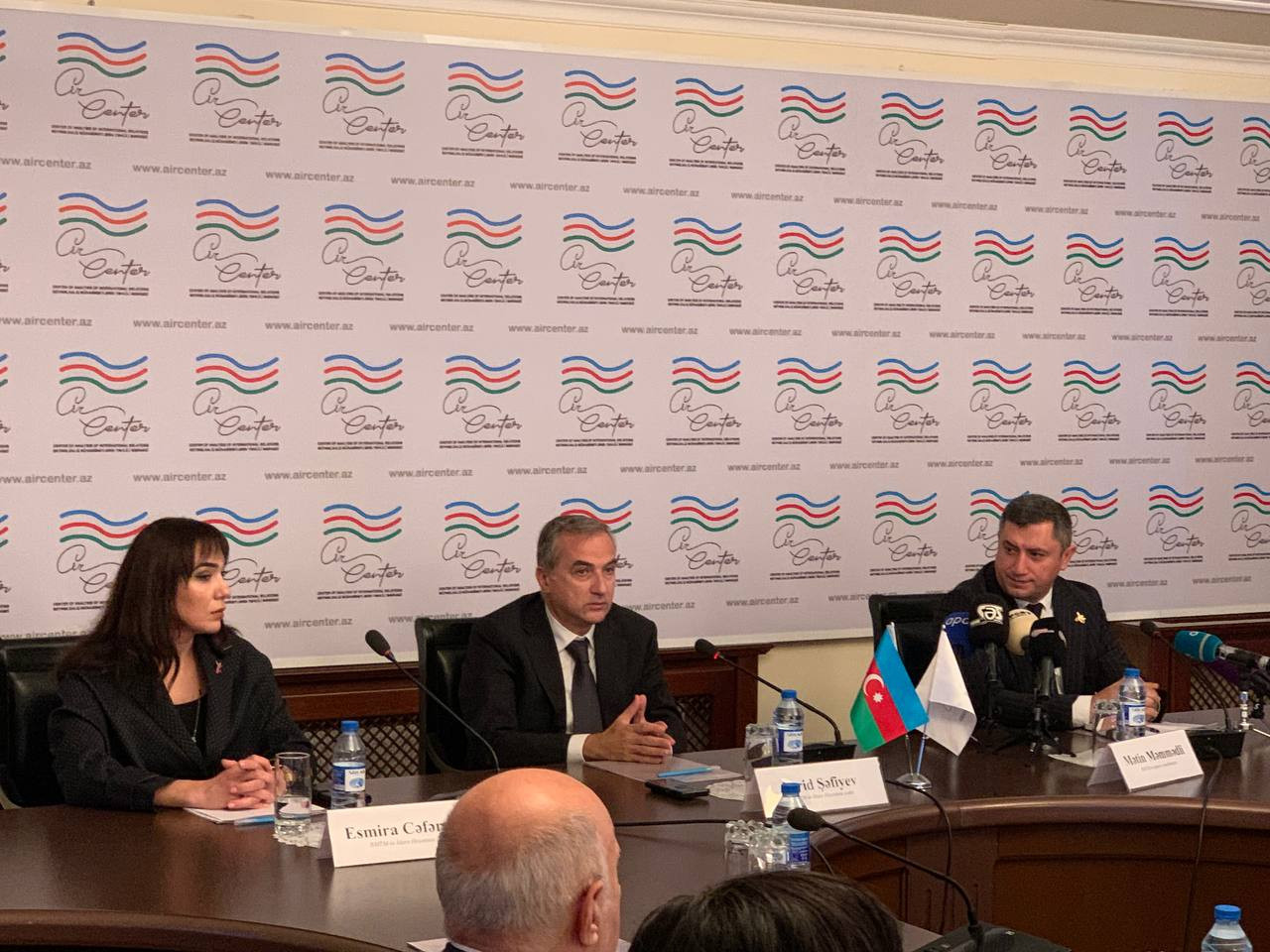Round table discussions were held on September 27th - Memorial Day at the AIR Center. At the beginning, a minute of silence was observed to honor the memory of the martyrs, who sacrificed their lives for the territorial integrity of Azerbaijan. The AIR Center Chairman, Farid Shafiyev, touched upon the recent border clashes and said that there were speculations about why Azerbaijan still gives martyrs even though the conflict has ended. According to him, Azerbaijani lands have been under occupation for almost 30 years: "Considering the result of the 44-day war, we can say that the conflict is obviously over while the problems are still not. There have been clashes and we have suffered losses. In principle, Azerbaijan’s current position excludes returning to the pre-war agenda. Before the war, the conflict was mediated by the Minsk group and the so-called Madrid principles defined the framework for negotiations, which was also accepted by Azerbaijan. However, in the end, Armenia rejected these principles. The so-called "Nagorno-Karabakh" and the referendum which were also mentioned in the Madrid principles are the part of a pre-war agenda. We consider the conflict over and will not return to it." Farid Shafiyev added that negotiations are currently being conducted in four directions - peace agreement, delimitation and demarcation, opening of communications and humanitarian issues. He also said that think tanks should conduct their activities in two main directions: they should explain how the events actually occurred, and secondly, they should make an analysis of the complex processes happening around Azerbaijan.
Esmira Jafarova, the AIR Center Board Member, said that as a result of the 44-day war that started on September 27th, 2020 Azerbaijan achieved a great victory. Recalling the events that led to the war, she drew attention to the fact that the Minsk Group had unsuccessfully mediated the conflict resolution for 28 years. Esmira Jafarova noted that after Nikol Pashinyan became the prime minister of Armenia, there were hopes in Azerbaijan that peaceful resolution of the conflict could be successful and Pashinyan's early messages gave a reason to claim so: "However, he started to use the Karabakh card after he was not able to keep his pre-election promises, thus resorting to political instigations and armed attacks. During Armenia’s next attack against Azerbaijan on 27th of September, Azerbaijan finally started counter-offensive operations. Esmira Jafarova said that Azerbaijan achieved political and military victory by virtue of unity of its nation. This victory dismissed the long-entrenched speculations that "there is no military solution to war" or that "Azerbaijan cannot wage war".
Matin Mammadli, AIR Center’s leading advisor, pointed out that the 44-day war had military, political, strategic and moral outcomes. According to him, a new stage has begun in the region after the war, and new geopolitical realities have had a significant impact on the peace process. The expert said that Azerbaijan's position on achievement of lasting peace in the region is based on reaching agreement on four main issues. However, he added that Armenia’s unconstructive position on these issues led to new hostilities. Matin Mammadli stressed out that Armenia’s accomplices, who provide political and military assistance and ignore the existing problems also obstruct this process.
The round table continued with the discussions of the conference participants.




